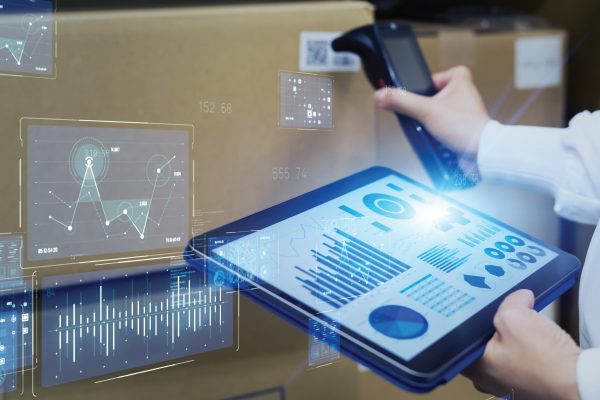There is no stopping the business disruption and digital transformation that has accelerated beyond imagination in the new normal. For small and mid-sized businesses that want to continue being in the game, but do not have the wherewithal to develop proprietary digital technology and tools, API integration offers a much-needed solution. Global logistics companies like ECU Worldwide, the world leader in LCL consolidation, have been spearheading efforts in this direction to help partners and customers enhance efficiency.
Digitalization is changing the rules of the game for global business supply chains, but for many players, API integration has the potential to emerge as the winning move.
According to a research by Gartner, by 2023 over 50% of medium to large enterprises will have adopted an LCAP (Low-Code Application Platform). This will enable organizations to manage APIs more flexibly.
“With its state-of-the-art digital platform ECU360, ECU Worldwide offers small and mid-sized businesses the opportunity of API integration. So, ECU360 is implemented into their existing systems and platforms and they can draw from ECU360’s global network and information without needing to log out of their existing systems and log in to another. This can truly help them scale up and succeed in today’s ever-dynamic and constantly evolving business landscape”, says Dr. Philip Blumenthal, Chief Transformation Officer, ECU Worldwide.
Here are five ways ECU360’s API integration helps its freight forwarding customers and partners increase efficiencies and optimize their business processes.
Innovation and automation
With ECU360 API integration, manual completion of repetitive tasks is significantly reduced. The automation of mundane steps helps save time and helps team members focus their attention on more strategic and creative aspects of their business.
It reduces the overall workflow and thus enhances efficiency.
Managing this integration drives the need for hybrid API management platforms that can accommodate a range of users from highly tech-oriented to business-focused, as well as optimize APIs that exclusively reside neither on-premise and nor in the cloud.
On-boarding and familiarity
With API integration, customers’ team members can leverage the benefits of ECU360 while continuing to work on their existing systems. ECU360 seamlessly integrates into it. This allows team members working on a system and environment they are already familiar with, and eliminates the need to log on to a separate programme or application that can get quite cumbersome at times.
Real-time and quick access to relevant data and analytics is likely to hold customers in good stead, because as per a recent report of the International Institute for Analytics, businesses using data are estimated to gain more than USD 400 billion in productivity benefits as compared to the ones that don’t.
Global network and reliability
ECU360 is bolstered with numerous features and can enable seamless global cargo movements across a network of more than 180 countries and over 2400 direct trade lanes for LCL. Freight forwarding customers and partners who enable API integration can leverage this to expand their business horizons and also benefit from door-to-door rates and deliveries for over 50 countries.
Additionally, they also benefit from the reassurance and reliability of working with a global leader like ECU Worldwide.
Considering the critical importance of data security, organizations like ECU Worldwide may evaluate and implement a number of API security measures like Endpoint Detection and Response (EDR) or authorization mechanisms like OAuth2 to manage information flow and access, as per requirement and feasibility.
Customer centricity
For small and mid-sized businesses who want to deliver the best to their customers, ECU360’s API integration forms an ideal solution for global cargo shipment rates, booking and track and trace. ECU360’s instant quotes, provision to save templates for repeat transactions, bookings in less than 30 seconds truly add to customer convenience.
With its track and trace and provision for regular updates at each stage of the cargo movement, freight forwarders can offer their customers end-to-end cargo visibility and better control over their cargo movements.
In the new normal business environment, increasing customer expectations are leading to more feature-rich apps being developed and consequently, more content being shared over API. As a result it has become imperative for APIs to adhere to best practices and ensure not just satisfactory but delightful customer experiences.
Digitalizing the ecosystem
As an organization that abides by the values of ‘Collaboration’ and ‘Innovation and Execution’, ECU Worldwide remains committed to not only digitally-enabling its own business processes and operations but also contributing to bolstering digital capabilities across the global logistics ecosystem.
With API integration of ECU360 the organization extends its knowledge and expertise to freight forwarding customers and partners, so that the logistics industry benefits as a whole and successfully continues to meet increasing expectations of global business supply chains and customers.














